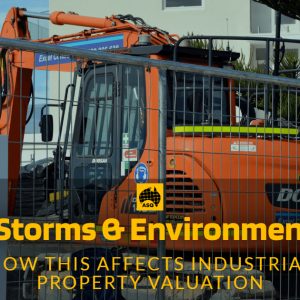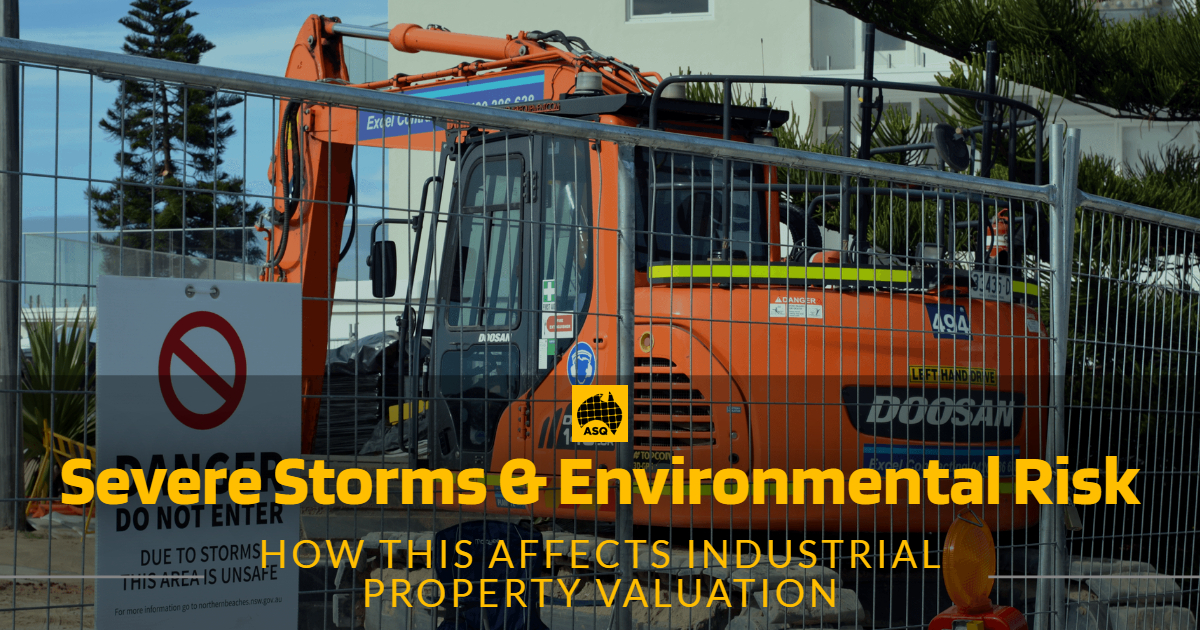Environmental risks influence the valuation of industrial properties in Sydney, where commercial and industrial real estate plays a crucial role in economic development. Environmental concerns can have long-term effects on property values, making it essential for property owners, investors, and appraisers to understand how these risks impact industrial property valuations in Sydney. This article highlights the growing concern about environmental risks in industrial real estate, their implications on property value, and the strategies for managing these risks in property valuations.
What Is Industrial Property Valuation?
Industrial property valuation determines the market value of a property used for industrial purposes, such as manufacturing, warehousing, and distribution. It involves a detailed assessment of various factors contributing to a property’s worth, including location, size, condition, and income-generating potential. In Sydney, where the industrial real estate market is growing, the valuation process also considers the potential risks impacting the property’s future value, including environmental risks.
Environmental risks have gained increasing importance in commercial real estate. This is true for industrial properties, where the potential for environmental hazards is higher due to the nature of the activities conducted on the premises. Issues such as soil contamination, air pollution, and water contamination can not only pose serious health and safety concerns but can also impact the property value. The awareness and understanding of these risks are growing, as investors and property owners seek to protect their investments from potential liabilities and financial losses.
When assessing properties for sale or rent, environmental risks can lead to higher operating costs, reduced demand, or legal liabilities that diminish the attractiveness of the investment. Understanding these risks and how they influence industrial and commercial property valuations, and land value in Sydney is crucial for making informed real estate decisions.
Understanding Environmental Risks
Environmental risks refer to the potential hazards that may affect the environmental health, local communities, and the safety of properties. These risks can arise from various human activities, including industrial operations, waste disposal, and pollution. Common environmental risks affecting industrial properties include soil contamination, air pollution, water contamination, and natural disasters such as flooding or wildfires.
In Australia, numerous regulations and standards govern environmental risks. These include federal and state laws, such as the Environmental Protection and Biodiversity Conservation Act, which provides guidelines for managing environmental hazards. Local governments in Sydney and across NSW have zoning and land-use laws that help mitigate the risks posed by industrial operations. For industrial property owners, understanding these legal frameworks is essential for minimising liability and ensuring compliance with environmental standards.
Key Environmental Risk Factors That Affect Valuation
Several specific environmental risk factors can influence the valuation of industrial properties:
- Soil Contamination and Toxic Spills
Soil contamination is the most significant environmental risk for industrial properties, for those in older industrial zones or near past chemical manufacturing sites. Hazardous chemicals or waste materials left behind from previous operations can cause significant environmental damage. The cost of soil remediation to restore the property to a safe and usable condition can be substantial, negatively affecting its market value.
- Air Quality and Emissions Near Industrial Sites
The proximity of industrial sites to areas with poor air quality or high emission levels can impact human health and property values. In commercial property valuations in Sydney, appraisers will consider the air quality around an industrial site, as poor air quality can reduce property demand.
- Proximity to Hazardous Waste Facilities or Landfills
Properties near hazardous waste facilities, landfills, or contaminated areas are at risk of devaluation. The potential for groundwater or air contamination from these sources creates concerns for buyers, tenants, and investors, leading to a decrease in property value.
- Groundwater and Surface Water Contamination
Contamination of groundwater or nearby water sources, due to improper waste disposal or chemical leakage, can result in costly clean-up efforts and long-term environmental damage. This is a critical factor in industrial property valuation in Sydney, as contaminated water sources can limit the land’s potential for future development or use.
- Asbestos, Lead, and Other Legacy Building Materials
Older industrial properties may contain hazardous materials such as asbestos or lead-based paints, which pose health risks. The presence of these materials requires costly remediation and can reduce the property value.
- Risk of Flooding and Climate Change Impacts
Flooding is an increasing concern for industrial properties in areas prone to large hail storms and other extreme weather events and climate change. Properties located in flood-prone zones or coastal areas face significant risks of property damage, increased insurance premiums, and lower market demand.
The Impact on Property Appraisals
Environmental risks are a crucial consideration for appraisers when conducting property valuations in NSW. Appraisers factor in the potential costs of environmental remediation, legal liabilities, and the marketability of the property when adjusting cap rates and applying the income approach to valuation. In some cases, environmental red flags may lead to a significant devaluation of the property.
Conclusion
Environmental risks are an increasingly important factor in the valuation of industrial properties. In Sydney, where the demand for commercial and industrial real estate is high, understanding the impact of environmental hazards on property value is essential for making informed investment decisions. Property owners, investors, and appraisers must consider the potential financial, legal, and operational implications of these risks to accurately assess the value of industrial properties. As environmental concerns grow, the integration of environmental risk assessment into property valuations in NSW will become more critical in protecting investments and ensuring the long-term viability of industrial properties.

